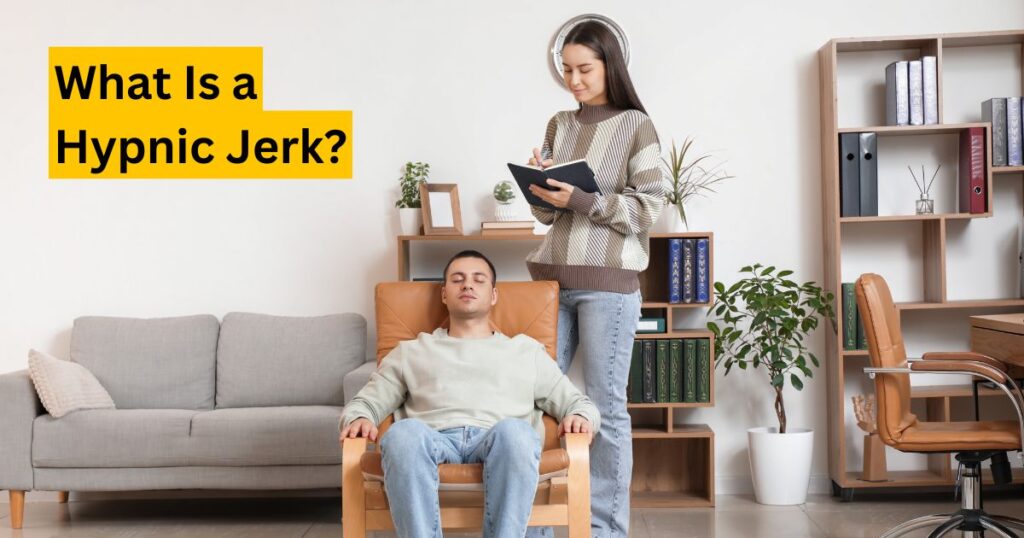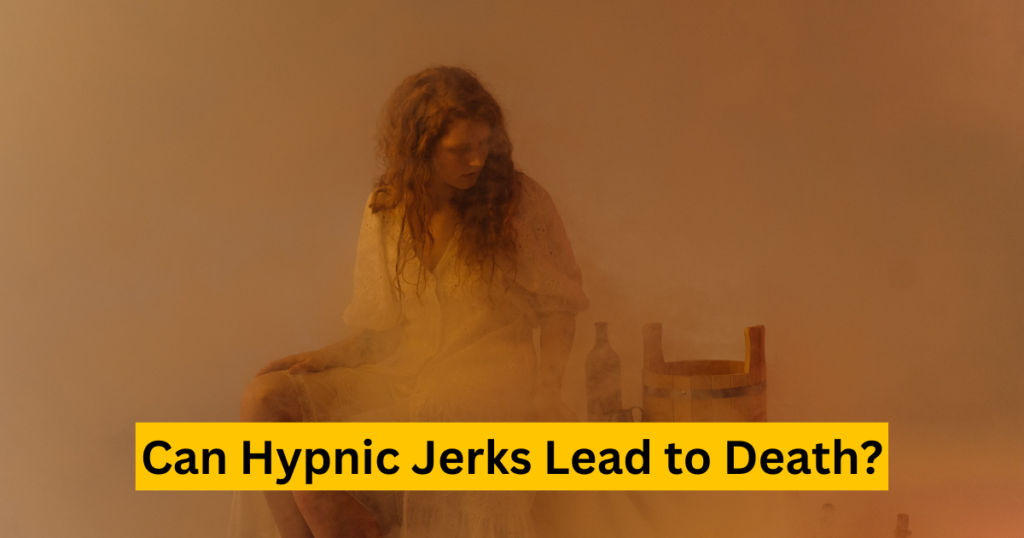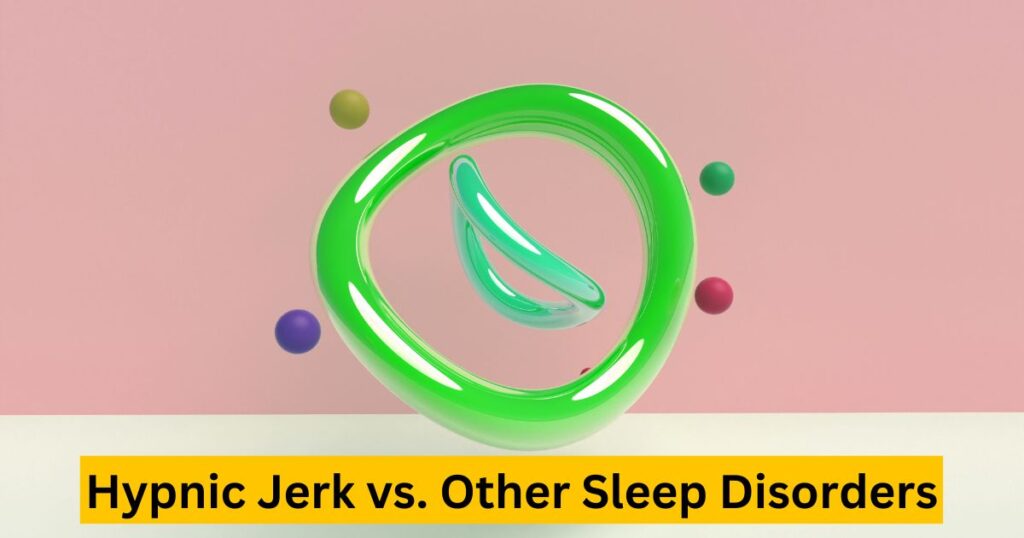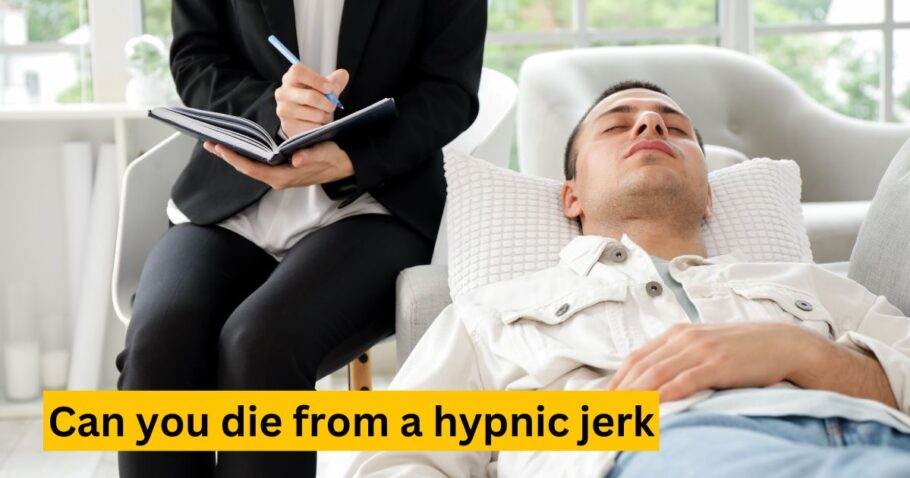Hypnic jerk, also known as a sleep start, is a sudden, involuntary muscle twitch that occurs as you’re falling asleep. Many people experience this phenomenon and wonder, “Can you die from a hypnic jerk?” The short answer is no—hypnic jerks are generally harmless. However, understanding what causes them, how they affect your sleep, and whether they signal an underlying issue is essential for peace of mind.
In this article, we’ll explore the causes of hypnic jerks, their potential dangers, and how to manage them effectively. By the end, you’ll have a clear understanding of this common sleep phenomenon and whether it’s something to worry about.
What Is a Hypnic Jerk?

A hypnic jerk (or sleep start) is a sudden, involuntary muscle contraction that happens as you transition from wakefulness to sleep. It often feels like a falling sensation or an electric shock, and it can cause your arms, legs, or entire body to jerk awake. These involuntary muscle twitches are a type of sleep myoclonus, which refers to muscle movements during sleep.
Hypnic jerks are common and usually harmless. They occur during sleep transition movements, a phase where your body is shifting from being awake to asleep. While they can be startling, they’re not typically a cause for concern.
What Causes Hypnic Jerks?

The exact cause of hypnic jerks isn’t fully understood, but several factors are believed to contribute to their occurrence. These include:
- Stress and Anxiety: High levels of stress or anxiety can overstimulate the nervous system, leading to sudden body jerks during sleep.
- Caffeine and Stimulants: Consuming caffeine or other stimulants close to bedtime can disrupt your sleep cycle and trigger nighttime muscle spasms.
- Sleep Deprivation: Lack of sleep can make your body more prone to sleep-related muscle contractions.
- Physical Exertion: Intense physical activity before bed may increase the likelihood of hypnic jerks.
- Neurological Factors: Some researchers believe that hypnic jerks are a result of the brain misinterpreting muscle relaxation as a sign of falling.
Understanding these causes can help you identify potential triggers and take steps to reduce their frequency.
Are Hypnic Jerks Linked to Anxiety or Stress?

Yes, hypnic jerks are often linked to anxiety and stress. When you’re stressed or anxious, your body’s fight-or-flight response can remain active, even as you try to fall asleep. This can lead to sudden body jerks during sleep as your nervous system struggles to relax.
Managing stress through relaxation techniques, such as deep breathing or meditation, can help reduce the frequency of hypnic jerks. Additionally, maintaining a consistent sleep schedule and creating a calming bedtime routine can improve your overall sleep quality.
Can a Hypnic Jerk Be Dangerous?
One of the most common questions people ask is, “Can a hypnic jerk be dangerous?” The good news is that hypnic jerks are generally harmless and not life-threatening. However, they can be alarming, especially if they occur frequently or are particularly intense.
In rare cases, hypnic jerks may be confused with other conditions, such as seizures or sleep-related movement disorders. If you experience frequent or severe episodes, it’s a good idea to consult a healthcare professional to rule out any underlying issues.
Can Hypnic Jerks Lead to Death?

No, hypnic jerks cannot lead to death. While they may feel unsettling, they are not associated with any life-threatening conditions. However, if you’re concerned about your symptoms or experience additional issues like chest pain or difficulty breathing, seek medical advice to rule out other potential causes.
How to Stop Hypnic Jerks
If hypnic jerks are disrupting your sleep, there are several steps you can take to reduce their frequency:
- Improve Sleep Hygiene: Maintain a consistent sleep schedule and create a relaxing bedtime routine.
- Reduce Caffeine Intake: Avoid caffeine and stimulants in the hours leading up to bedtime.
- Manage Stress: Practice relaxation techniques like meditation or yoga to calm your nervous system.
- Limit Physical Activity Before Bed: Avoid intense exercise close to bedtime.
- Create a Comfortable Sleep Environment: Ensure your bedroom is cool, dark, and quiet.
By implementing these strategies, you can minimize the occurrence of hypnic jerks and improve your overall sleep quality.
Hypnic Jerk vs. Other Sleep Disorders

It’s important to distinguish hypnic jerks from other sleep-related conditions, such as sleep paralysis, seizures, or restless leg syndrome. While hypnic jerks occur during the transition to sleep, other disorders may involve different symptoms or occur during different stages of sleep.
For example, sleep paralysis involves a temporary inability to move or speak upon waking or falling asleep, while seizures are caused by abnormal electrical activity in the brain. If you’re unsure about your symptoms, consult a healthcare professional for a proper diagnosis.
When to See a Doctor

While hypnic jerks are usually harmless, there are certain situations where you should seek medical advice:
- If hypnic jerks occur frequently and disrupt your sleep.
- If you experience additional symptoms like chest pain, difficulty breathing, or loss of consciousness.
- If you’re concerned about an underlying condition, such as a neurological disorder.
A healthcare professional can help determine whether your symptoms are related to hypnic jerks or another condition.
FAQs About Hypnic Jerks
- What is a hypnic jerk?
- A hypnic jerk is a sudden muscle twitch that occurs as you fall asleep.
- Can hypnic jerks kill you?
- No, hypnic jerks are not life-threatening.
- Are hypnic jerks dangerous?
- They are generally harmless but can be alarming.
- What causes hypnic jerks?
- Causes include stress, caffeine, sleep deprivation, and physical exertion.
- Can stress cause hypnic jerks?
- Yes, stress and anxiety are common triggers.
- How can I stop hypnic jerks?
- Improve sleep hygiene, reduce caffeine, and manage stress.
- Are hypnic jerks a sign of a serious condition?
- Usually not, but consult a doctor if you’re concerned.
- Do hypnic jerks happen during REM sleep?
- No, they occur during the transition to sleep.
- Can caffeine trigger hypnic jerks?
- Yes, caffeine can increase their likelihood.
- Should I see a doctor for hypnic jerks?
- If they’re frequent or severe, consult a healthcare professional.
Conclusion
Hypnic jerks are a common and usually harmless phenomenon that occurs as you fall asleep. While they can be startling, they are not dangerous and do not pose a risk of death. By understanding their causes and taking steps to improve your sleep hygiene, you can reduce their frequency and enjoy more restful nights.
If you’re concerned about your symptoms or experience additional issues, don’t hesitate to seek medical advice. Remember, a good night’s sleep is essential for your overall health and well-being.
If you found this article helpful, share it with others who might benefit from learning about hypnic jerks!





